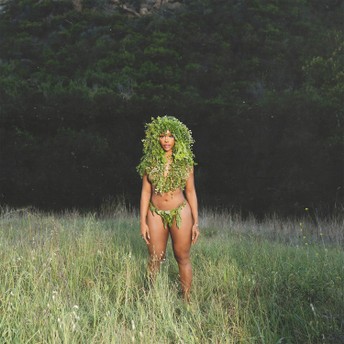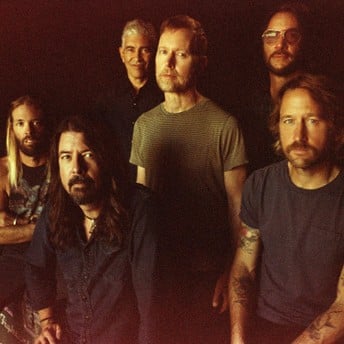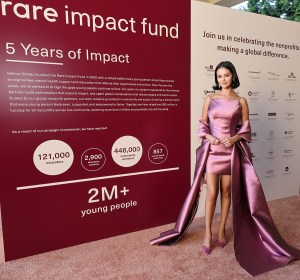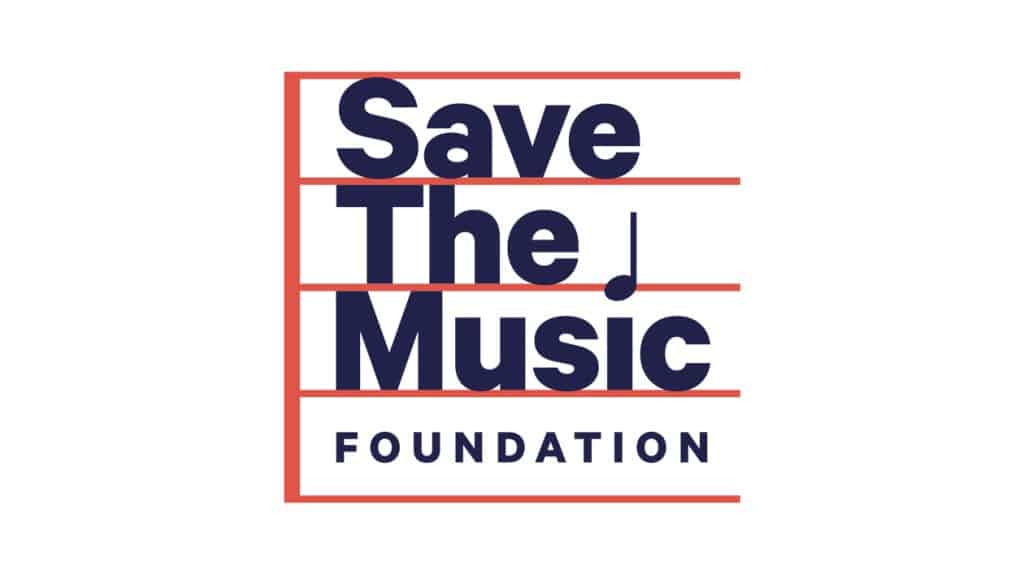charity
Trending on Billboard
Dave Grohl and the Foo Fighters spread some holiday cheer on Tuesday morning (Dec. 2) with the announcement of a big benefit show supporting the homeless non-profits Hope the Mission and the Los Angeles Mission. The special concert on Jan. 14 at the Kia Forum in Los Angeles will benefit the two organizations singer/guitarist Grohl, wife Jordyn Grohl and the band have long supported.
Explore
See latest videos, charts and news
“What better way to spend my 57th birthday than making a bunch of noise with a bunch of people for a good cause. This ain’t just a big ass rock show, it’s a big ass party with a heart,” said Grohl in a statement. Turn up the volume, turn up the hope, but most of all….TURN UP. The best gift is TO GIVE. Can’t friggin wait x.”
The only pre-sale opportunity for the show — which coincides with Grohl’s 57th bday — will be this Sunday (Dec. 7) at an in-person-only advance ticket purchase/donation drive at the Forum. Fans are asked to bring an item or items from a list of in-demand food and clothing necessities, with Hope the Mission slated to collect them on site. The list includes: socks and underwear (male, female, adult, children, all sizes, new/packaged only), dried pinto beans (bagged), pasta — spaghetti, macaroni (bagged or boxed) and dried rice (bagged), with a request not to bring canned or perishable goods.
The donations will support Hope the Mission and Los Angeles Mission provide food, clothing and direct services to unhoused and food-insecure Angelenos.
“Dave, Jordyn, and Foo Fighters are a striking example of what’s possible when we decide to show up and give back,” said Hope the Mission president Rowan Vansleve in a statement. “This concert will be more than just a celebration, it’s a statement that it will take all of us working together to end homelessness in our city so that no one is left suffering on our streets. We’re incredibly grateful to partner with the band. Foo Fighters and their fans have a reputation of always stepping up to help when people need it, and this concert will be no different.”
Dennis Oleesky, CEO of Los Angeles Mission added, “The impact of this event goes far beyond one night of incredible music. Every ticket purchased and every donation will directly help feed and house our unhoused neighbors. We’re honored Foo Fighters are joining to bring real help and real hope to people across Los Angeles.”
For more information on the charities and details on how you can help even if you can’t attend the show, click here.
The Foos have wrapped up their tour dates for the year, but will be back on stage on Jan. 10 at Feria Estatal De Leon in Guanajuato, Mexico, followed by a summer run of European shows and North American stadium gigs with Queens of the Stone Age in August and September.

Trending on Billboard SZA‘s Not Charity has teamed up with the Los Angeles-based restaurant Jon & Vinny’s to provide 1,400 free meals for people who are struggling to put food on the table in the midst of the longest government shutdown in history as their SNAP (Supplemental Nutrition Assistance Program) benefits dry up. Explore See […]
Trending on Billboard Taylor Swift fans are a powerful bunch. And in a situation where millions of Americans risked going hungry with the potential halt of the Supplemental Nutrition Assistance Program (SNAP), the group is using that power for good. On Friday (Oct. 31), the Swifties for Hope account on X shared an announcement encouraging […]
Trending on Billboard
Selena Gomez knows she’s in a rare position to give back, and she’s taking it. On Wednesday (Oct. 29), the singer-actress hosted her third annual Rare Impact Fund Benefit in Los Angeles, an event that raised more than $600,000 for mental health charities.
The night’s programming was hosted by Jimmy Kimmel and featured performances from Laufey and The Marías, each of whom Gomez snapped photos with on the red carpet. Her new husband, Benny Blanco, was also in attendance, as were recognizable names such as Lil Dicky, Jake Shane, Jay Shetty and more.
“This night is a celebration of how far we’ve come and a powerful reminder of how much more we can do together,” Gomez said of the event in a statement shared with Billboard in September. “I’m incredibly grateful to Jimmy and The Marías for joining me in shining a light on youth mental health. Their support means the world – not just to me, but to millions of young people this work touches around the globe.”
The $600,000 raised on site via commitments from the night’s guests make up just one big step in the Rare Impact Fund’s mission to generate $100 million for global mental health resources and education programs. The event comes five years after Gomez first founded the fund in conjunction with her billion-dollar Rare Beauty business.
Last year’s benefit — which featured live music from Karol G and Teddy Swims — raised upward of $2 million for the Rare Impact Fund.
“Mental health is personal for me,” Gomez says in a mission statement on her organization’s website. “I went a long time without the support I needed because I didn’t understand what I was feeling. After experiencing what seemed like endless highs and lows that would take me out for weeks at a time, I finally found the help to see what I was going through.”
“That’s why I started the Rare Impact Fund,” adds the mogul, who’s long been open about her struggles with depression and bipolar disorder. “It’s a commitment to expand access to mental health services and education for young people everywhere. Because no one — regardless of age, race, gender, sexual orientation, or background — should struggle alone.”
See photos from Gomez’s third annual Rare Impact Fund Benefit below.
Selena Gomez attends the Third Annual Rare Impact Fund Benefit hosted by Selena Gomez at Nya Studios on October 29, 2025 in Los Angeles, California.
Amy Sussman/Getty Images for Rare Impact Fund
(L-R) Selena Gomez and Jimmy Kimmel attend the Third Annual Rare Impact Fund Benefit hosted by Selena Gomez at Nya Studios on October 29, 2025 in Los Angeles, California.
Amy Sussman/Getty Images for Rare Impact Fund
At age 26, Laufey has already reached the pinnacle of her industry. Now, she’s looking to help other young musicians realize their dreams, too.
On Tuesday (April 29), the Grammy-winning artist, composer, producer and multi-instrumentalist announced the launch of The Laufey Foundation, which will strive to make music education, specifically youth orchestra programs, accessible to young people from all different backgrounds. Laufey got her start in youth orchestra programs before receiving a Presidential Scholarship to attend the Berklee College of Music.
“The support and scholarships I received as a child have directly led to the career I have now,” Laufey said in a statement. “It’s been a lifelong dream of mine to provide the next generation with the same support and opportunities. I can’t wait to connect with the young musician community!”
The foundation will award inaugural grants to the Boston Youth Symphony Orchestras, LA Phil’s YOLA (Youth Orchestra Los Angeles) program, The Cleveland Orchestra Youth Orchestra, and two of Carnegie Hall’s national youth ensembles (NYO2 and NYO Jazz). It plans to extend grants to additional orchestras globally in the years to come.
Trending on Billboard
Along with Laufey’s personal contribution to the foundation’s launch, AWAL, AEG Presents, and Steinway & Sons were announced as founding partners, while Warner Chappell, Catbird, and Gibson have come aboard as benefactor partners. Laufey will also donate a portion of the proceeds of every Mei Mei the Bunny plushie sold to the foundation.
This isn’t Laufey’s first charitable endeavor. Last year, she founded the Laufey Scholarship for Graduate Students at Syracuse University’s Bandier Music Business Master’s Program, which will provide $100,000 to international students in need of financial aid over the next 10 years. Earlier this year, she also donated to several organizations — including World Central Kitchen, Pasadena Humane Society, Altadena Girls and L.A. Regional Food Bank — that supported Los Angeles residents in the aftermath of the L.A. wildfires.
Over the years, Jon Bon Jovi has become known for his philanthropic work with the Jon Bon Jovi Soul Foundation, which addresses homelessness, poverty and food insecurity. He and his wife, Dorothea, also gave back by opening the JBJ Soul Kitchen, a non-profit community restaurant with four locations in the rocker’s home state of New […]
One of Chappell Roan‘s most iconic looks was hot to go at a recent auction for Los Angeles wildfire relief, with the star’s quintessential blue-sequined marching band unitard pulling in tens of thousands of dollars for the cause at Give a Frock’s charity benefit. As announced on Instagram by Julien’s Auctions on Tuesday (Feb. 25), […]
After Chappell Roan was criticized by a former music industry executive for her speech at the 2025 Grammys, the singer encouraged the music industry’s power players to join her in raising money for artists’ healthcare coverage. Now, it appears that the industry listened.
On Monday (Feb. 10), Roan officially partnered with the non-profit Backline to launch the We Got You campaign, a fundraising initiative aimed at “supporting accessibility of health care for artists,” according to its donation page. In an Instagram Stories post revealing the partnership, Roan added that she had donated $25,000 to the campaign — with fellow artists Charli XCX and Noah Kahan matching her donation — and urged industry executives to do the same.
“Fans, y’all don’t have to donate a damn penny,” she said in the post. “This is one of many opportunities for the industry powers to show up for artists. There is much more work to be done.”
Trending on Billboard
According to We Got You’s donations page, multiple major music companies and executives matched Roan’s donations. Public $25,000 contributions from Live Nation, AEG Global Touring, Wasserman Foundation and Hinterland Music Festival are listed among the campaign’s supporters, as well as matching donations from Sumerian Records founder/CEO Ash Avildsen and talent manager Guy Oseary.
“Thanks Chappell Roan for inspiring change,” read a noted shared alongside AEG’s donation. Avildsen added, “Sumerian Records always strives to be on the right side of history. Then. Now. Forever.”
In a statement shared to their Instagram, Hinterlands Music Festival commended Roan, Kahan and Charli XCX for publicly supporting “adequate support” for artists. “Without great artists, there are no music festivals,” the organization wrote. “As an independent music festival, we are dedicated to continuing to support and advocate for the well-being of all musicians, no matter their industry success. WE GOT YOU!!”
“This surge in advocacy marks a turning point in our journey as an organization,” said Backline executive director Hilary Gleason in a statement sent to Billboard on Wednesday (Feb. 12). “We are thrilled to see artists, industry leaders, and corporations take action to invest in the health and wellness of the music industry professionals who make it all happen. The awareness alone will have a significant impact for the music community in 2025 and beyond.”
In her own statement shared shortly after the campaign was launched, Backline community manager Terra Lopez praised Roan for helping the organization raise vital funding for artists’ health. “The We Got You campaign is a powerful step in prioritizing mental health and well-being of those who make the music we all love,” she wrote. “Thank you to Chappell Roan, Charli xcx, and Noah Kahan for your advocacy and action to create a more supportive industry — together, we are showing artists they are seen, heard, and cared for.”
Roan’s $25,000 donation was first revealed in a response the artist wrote to former A&R executive Jeff Rabhan, who criticized the singer’s call for label-provided healthcare at the 2025 Grammys. “@jeffrabhan wanna match me $25K to donate to struggling dropped artists?” she wrote on her Instagram Stories last week. “I love how in the article you said ‘put your money where your mouth is.’ Genius !!! Let’s link and build together and see if you can do the same.” At press time, none of the public donations to the campaign bear Rabhan’s name.
As the final artist to take the stage at Thursday night’s (Jan. 30) FireAid benefit concert, Lady Gaga left her mark by debuting a brand-new song written with her fiancé, Michael Polansky, for the victims of the Los Angeles wildfires. “Me and my friend Michael — my fiancé, my love — we wrote this song […]
From the late 1990s into the 2000s, “VH1 Save the Music” was a household name known for its annual Divas Live benefit concerts featuring such bold-faced icons as Aretha, Whitney, Mariah and Celine. But by the end of the 2010s, following the television network’s pivot to reality series like Love & Hip-Hop and Basketball Wives, the branding no longer made sense.
“In 2019, it was pretty clear strategically that going forward, the VH1 brand was not going to be part of our future,” says Henry Donahue, executive director at the Save the Music Foundation. As a result, “VH1” was dropped from the organization’s name that same year.
Far from being a disaster, unbundling from VH1 gave Save the Music new life, says Donahue — and in 2025, it’s arguably doing better than ever. According to Donahue, Save the Music’s annual operating budget in 2018 — the year before the VH1 name was dropped — was $4.7 million. Last year, that number had risen to nearly $11 million, including more than $1 million from a new $10 million endowment fund that the foundation formally announced on Wednesday (Jan. 29). (Save the Music notes the 2024 numbers are still unaudited.)
Trending on Billboard
The fund, of which $4 million has already been raised, will “ensure the cultural institution’s sustainability and long-term support for music education,” according to a press release. Notably, the endowment coincides with a formal split from Save the Music and VH1’s longtime corporate parent Paramount Global (formerly Viacom), though the entertainment giant has pledged an initial six-figure donation.
The breakup had been a long time coming. In the five years since it dropped the VH1 branding, Save the Music has substantially reduced its dependence on Paramount after the company opted to move away from social responsibility initiatives, the foundation says. By 2024, 95% of Save the Music’s organizational budget came from non-Paramount sources, with notable backers including tech and music industry behemoths like TikTok, Live Nation, Meta, Amazon and AEG Presents.
The split from Paramount marks the end of a long and productive relationship. Since it was founded by then-VH1 president John Sykes in 1997, Save the Music has donated more than $75 million worth of instruments and technology to over 2,800 school music programs in more than 300 districts across the U.S. and improved the educational fortunes of countless under-resourced students.
Sykes tells Billboard that the foundation came about after he visited Brooklyn elementary school P.S. 58 as part of a “principal for a day” initiative and, while sitting in on the school’s music class, “saw these kids playing their instruments [that] were held together with tape, literally tape, and strings missing on violins, and they didn’t care. They were so, so excited and so connected to the music… they had no idea that the instruments they were playing were falling apart.”
While speaking with the music teacher, Sykes (now president of entertainment enterprises at iHeartMedia and chairman of the Rock & Roll Hall of Fame) learned that the music program would likely have to close down for lack of funds. “And I said, ‘Well, how much do you need?’” he remembers. “And she said, ‘Well, a lot — $5,000.’ I said, ‘You got it.’”
Sykes was particularly encouraged by something else the teacher said: That the children who played instruments tended to earn better grades in math and English. Around the same time, he read a magazine article that described how music “helps wire a kid’s brain.”
“I said, ‘Oh, my God. This is bigger than one school. This could impact the country,’” he says. “And VH1 was a national channel. So I went back to our team and I said, ‘We’re going to adopt more schools across the country and partner with our cable systems to raise money and start using the power of VH1’s reach to go and influence local governments not to cut music programs. And we’re going to raise money to fund those programs.’”
Soon enough, Save the Music had equipped roughly a dozen New York schools with musical instruments. When Sykes put in a personal call to President Bill Clinton, who had famously played the saxophone on The Arsenio Hall Show during the 1992 election campaign, Clinton agreed to donate one of his saxes to an underprivileged school in Washington, D.C. When the President sent First Lady Hillary Clinton to hand the instrument over, says Sykes, “It became a national story.”
The foundation was formally unveiled in April 1997 during that year’s VH1 Honors awards show, which raised $150,000 for the organization and featured callouts from A-list artists touting the importance of music education. The following year, VH1 Divas Live — a once-annual concert special benefitting the foundation — was launched with Dion, Aretha Franklin, Mariah Carey, Shania Twain and Gloria Estefan and became a phenomenon, grabbing big ratings and even selling albums. (A series of commercially-released VH1 Divas albums sold a combined 1 million copies in the U.S., according to Luminate.)
In its current iteration, Save the Music makes a capital investment in between 100 to 150 school music programs in the U.S. every year, says Donahue. The foundation identifies districts to support via a rubric that looks at two primary factors: economic need, which accounts for everything from median income and racial demographics to free and reduced lunch rates; and readiness and willingness of the district to work with them, including by providing a certified music teacher. They also look at scale, preferring projects that allow them to target “30 or 50 or 100 schools all at once” in a district or a region, says Donahue.
The gradual de-coupling from Paramount brought opportunities and funding Save the Music otherwise wouldn’t have had. In 2021, the new paradigm “was validated,” Donahue says, when the foundation received a $2 million grant from MacKenzie Scott — the co-founder of Amazon and ex-wife of Jeff Bezos — “which we never would have gotten had we been VH1 Save the Music.”
The shift away from Paramount also allowed Save the Music to become much more responsive to communities’ needs, says Donahue. “[We wanted to] push towards a strategy where our work was much more community based,” he says. “So we were listening to the people in the communities that we served, as opposed to taking direction from the corporate parent or however we fit into the corporate strategy.”
Save the Music’s sought-after post-VH1 program is the J Dilla Music Technology Grant, which invests in music technology curriculums and equipment for elementary, middle and high schools in an effort to help train the next generation of producers, engineers, songwriters, DJs and more. Chiho Feindler, who has served as Save the Music’s chief program officer since 2008, says the grant allows kids to be trained early in the kind of behind-the-scenes jobs that can lead to real careers.
“We often talk about everybody wants to become the Jay Z…but there are a thousand other jobs behind that that can be equally, if not more satisfying,” Feindler adds.
“[It’s] our most-demanded program,” Donahue says of the J Dilla grant, which has gone to more than 100 schools, including “35 or 40” just during the 2024-25 school year. “That’s the thing that schools now ask about most often and it’s the thing that people in the music industry ask about most often.”
A more recent focus has been expanding the foundation’s grants for Latin music programs to encompass additional genres and styles beyond mariachi — another result of the new freedom and depth of engagement with communities made possible by the gradual split with Paramount. “Mariachi is really a small part of the Latin community,” says Feindler, “[but] mariachi is not a solution for all of the Spanish-speaking community.” (Full disclosure: Billboard recently hosted a fundraiser via Instagram for Save the Music’s “Miami Saves Music” project, which is aiming to invest in instrumental and music tech programs for roughly 100 public schools in Miami-Dade County by 2027.)
Feindler adds that Save the Music is also looking to offer more support to preschool and elementary school-aged music programs by providing kid-friendly instruments like xylophones and drums after focusing “for the longest time… on more of the band and stringed [instruments],” she says.
Another new initiative was announced on Wednesday: a giveaway campaign hosted on the charity platform Propellor that will allow fans to bid on more than a dozen auction items from artists including Sabrina Carpenter, The War and Treaty, Blake Shelton and Patti LaBelle to support the foundation.
Though Save the Music is far from its nationally televised Divas Live days, it still attracts A-list talent. In 2023, Ed Sheeran teamed with the foundation to surprise five schools with “pop-up” classroom visits while donating a portion of the proceeds from digital album sales from his Autumn Variations album, along with 100% of the ticket proceeds from an Amazon Live performance, to the organization. Last year, Save the Music also secured the support of Jelly Roll, who visited and performed at his former high school in Antioch, Tenn., and made a substantial donation to the foundation. And in October, Maren Morris, Brittney Spencer and Live Nation Women’s Ali Harnell were honored at Save the Music’s Hometown to Hometown benefit in Nashville, which raised more than $300,000 for music education programs in under-resourced public high schools.
With or without Paramount, Save the Music will continue to endure, says Sykes, because at heart it’s not just about learning to play an instrument but about giving kids a chance at carving out a successful path in life.
“This is not just, ‘Junior is happy because he’s playing the flute or the violin,’” he says. “That kid’s going to go to college, that kid’s going to do better, that kid’s going to stay in school, that kid’s going to feel better about himself or herself. There’s so many different positive outcomes of music education.”

 State Champ Radio
State Champ Radio 









